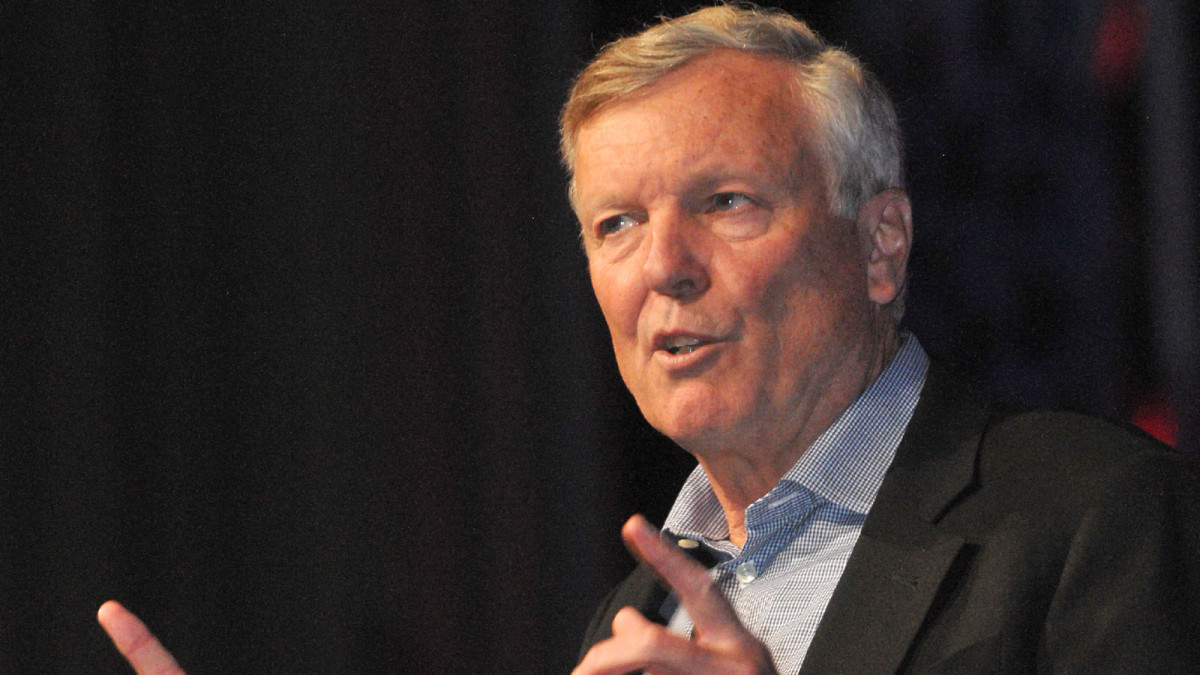Rutledge: ViacomCBS Deal Was 'Modern Agreement'
Charter chief said including streaming component in carriage pact recognizes video business is changing

The smarter way to stay on top of the multichannel video marketplace. Sign up below.
You are now subscribed
Your newsletter sign-up was successful
Charter Communications chairman and CEO Tom Rutledge told analysts Friday that the cable company’s recent deal with ViacomCBS, especially its streaming component, was a "modern agreement" that reflects the changing video landscape, hinting that similar deals could be reached in the future.
Charter said it reached a multi-year carriage deal with ViacomCBS on July 15, and though terms were not disclosed both companies said it included the ability for Charter to license ViacomCBS’ suite of streaming services, including Paramount Plus, Pluto TV, BET Plus and Noggin, for future distribution to Spectrum customers.
“[I]t was a modern agreement, a new agreement and recognized that the video business is changing,” Rutledge said on a conference call to discuss Charter’s Q2 results. “And it addressed our legacy relationship and addressed our new direct-to-consumer relationship with Viacom.”
ViacomCBS launched Paramount Plus in March and like other programmers, has looked to streaming services as the future of distribution. Viacom CBS said it had about 36 million subscribers to its streaming services at the end of the first quarter.
The Charter deal seems to be in line with the general consensus that cable distributors, who now count on broadband service to drive most of their profit, want a deeper relationship with streaming services. Most already integrate apps from SVOD pioneers like Netflix, Hulu and Amazon Prime into their set-top boxes. As more and more customers opt for broadband-only service -- Charter said its single play service penetration rose nearly two percentage points in Q2 to 45.7% from 44% in Q2 2020 -- operators are looking for additional content options to drive growth.
Also Read: Streaming: It's Not a War, It's a Revolution
The smarter way to stay on top of the multichannel video marketplace. Sign up below.
Rutledge said the streaming component to the Viacom CBS deal was “integral to the discussion and consistent with our view that we'd like to be part of the marketplace and to enhance our video and customer relationship with customers through managing transactions for them.”
ViacomCBS has been working hard to improve the footprint of its streaming services. Reports surfaced earlier this month that chairman Shari Redstone and CEO Bob Bakish had informal meetings with Comcast chairman and CEO Brian Roberts about a possible partnership involving international streaming. During Comcast’s Q2 results conference call July 29, Roberts didn’t confirm those meetings, but said he would be open to partnerships that promoted international streaming. Comcast’s NBCUniversal launched its streaming service -- Peacock -- nationally on July 15, 2020 In the second quarter, Comcast said Peacock had 54 million signups and 20 million monthly active users representing a 50% increase from the previous period.
Rutledge also offered more insight into Charter’s seemingly uncanny ability to report stronger video subscriber results than its peers. Charter added about 56,000 video customers in 2020, while other operators struggled with increased losses. In the most recent Q2, the company lost 63,000 video subscribers, better than the 160,000 most analysts believed it would lose, and well behind the 399,000 losses endured by its closest peer, No. 1 cable operator Comcast. Rutledge said there is no secret formula to Charter’s video performance, just common sense.
“We're selling more packages that allow us to tailor video to customer needs,” Rutledge said. “It's a difficult business because in general, video is very expensive. Our costs for video to provide it to customers are very high and continuously going up.”
Rutledge added although some consumers are priced out of the market because of the high cost of some traditional video packages, the alternatives are experiencing even higher churn.
“The new products that have been developed -- direct-to-consumer products -- are churning at higher levels,” Rutledge said. “And so our products also are in that re-adoption process of - that occurs as a result of churn.”
While that may make some think that the video business is stabilizing, Rutledge said the downward trend of the overall traditional video business can’t be ignored.
“The fundamental trends haven't stopped, which is that prices are being continuously passed through to consumers, and there's real pressure on the total cost of the bundle,” Rutledge said. “The reason we're relatively better, we've been moderate with our pricing, and we've created new packages that cost less.”
Mike Farrell is senior content producer, finance for Multichannel News/B+C, covering finance, operations and M&A at cable operators and networks across the industry. He joined Multichannel News in September 1998 and has written about major deals and top players in the business ever since. He also writes the On The Money blog, offering deeper dives into a wide variety of topics including, retransmission consent, regional sports networks,and streaming video. In 2015 he won the Jesse H. Neal Award for Best Profile, an in-depth look at the Syfy Network’s Sharknado franchise and its impact on the industry.

